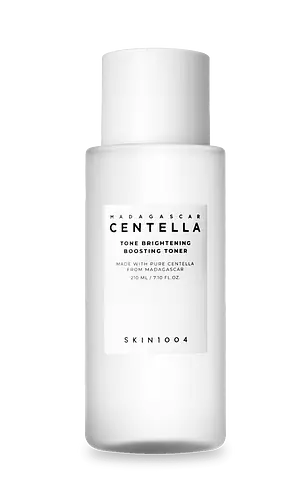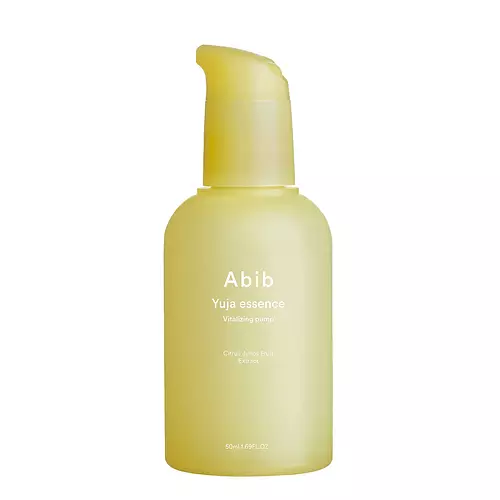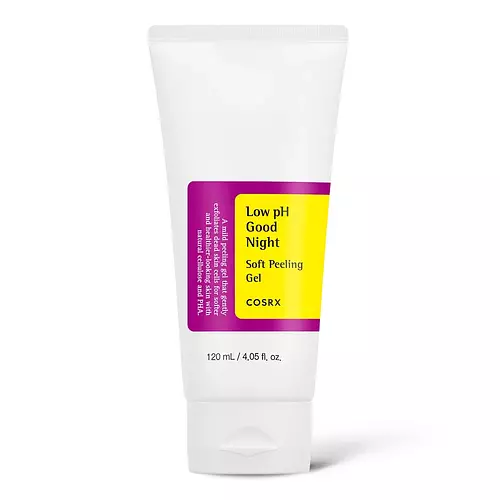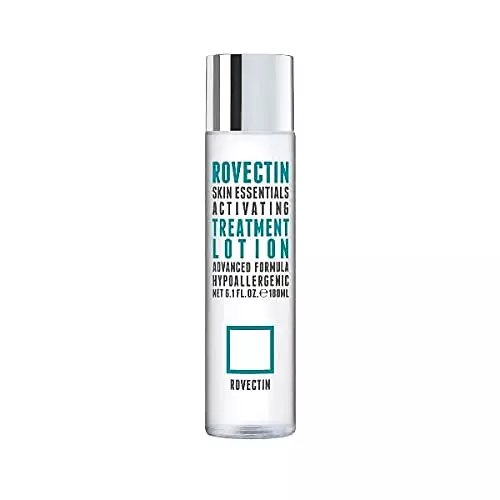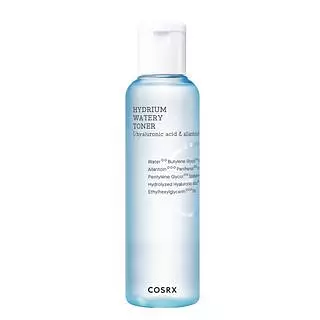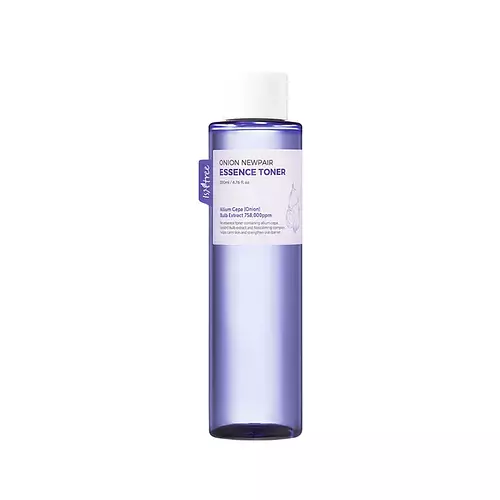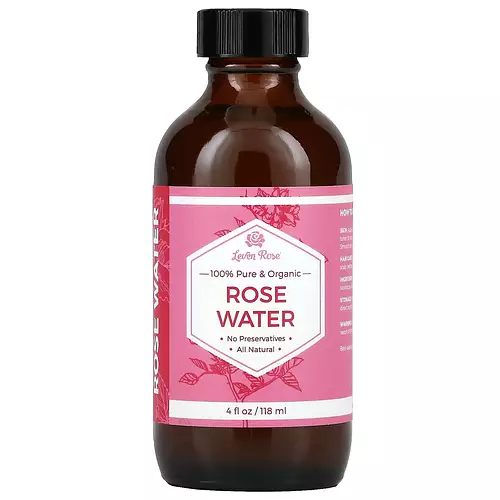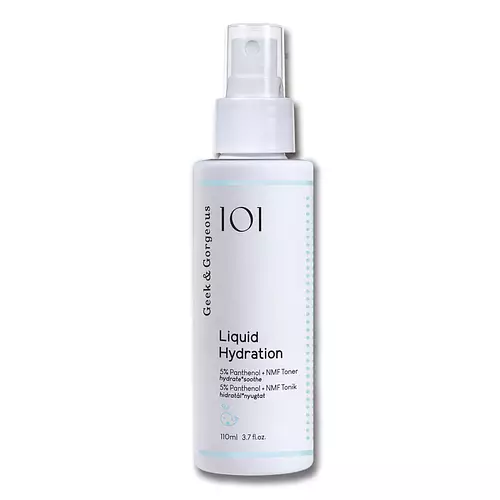Updated on August 08, 2023
Overview
What they are
These products are both vegan, cruelty-free, and reef safe toners. They have a total of 10 ingredients in common
Cool Features
They both contain niacinamide
Suited For
They're both likely to be good for fighting acne, anti aging, dry skin, brightening skin, sensitive skin, oily skin, reducing pores, scar healing, dark spots and better texture
Free From
They both do not contain any harsh alcohols, common allergens, fragrances, oils, parabens, silicones or sulfates
We independently verify ingredients, and our claims are backed by peer-reviewed research. Spot a product that needs an update? Let us know.
Ingredient Info
SKIN1004 Madagascar Centella Hyalu-Cica Brightening Toner 33 ingredients
SKIN1004 Madagascar Centella Tone Brightening Boosting Toner 25 ingredients
At a glance
Click on any of the items below to learn more
SKIN1004 Madagascar Centella Hyalu-Cica Brightening Toner 33 ingredients
SKIN1004 Madagascar Centella Tone Brightening Boosting Toner 25 ingredients
Notable Ingredients
This product contains 1 ingredient that may have this attribute:
This product contains 1 ingredient that may have this attribute:
This product contains 2 ingredients that may have this attribute:
Benefits
This product contains 1 ingredient that may have this attribute:
This product contains 1 ingredient that may have this attribute:
This product contains 3 ingredients that may have this attribute:
This product contains 1 ingredient that may have this attribute:
This product contains 1 ingredient that may have this attribute:
This product contains 1 ingredient that may have this attribute:
This product contains 2 ingredients that may have this attribute:
This product contains 1 ingredient that may have this attribute:
This product contains 2 ingredients that may have this attribute:
This product contains 1 ingredient that may have this attribute:
This product contains 2 ingredients that may have this attribute:
Concerns
This product contains 1 ingredient that may have this attribute:
Notable Ingredients
This product contains 1 ingredient that may have this attribute:
This product contains 1 ingredient that may have this attribute:
Benefits
This product contains 1 ingredient that may have this attribute:
This product contains 5 ingredients that may have this attribute:
This product contains 5 ingredients that may have this attribute:
This product contains 1 ingredient that may have this attribute:
This product contains 1 ingredient that may have this attribute:
This product contains 1 ingredient that may have this attribute:
This product contains 2 ingredients that may have this attribute:
This product contains 2 ingredients that may have this attribute:
This product contains 1 ingredient that may have this attribute:
This product contains 2 ingredients that may have this attribute:
Ingredients Side-by-side
Ingredients Explained
These ingredients are found in both products.
Ingredients higher up in an ingredient list are typically present in a larger amount.
Butylene Glycol (or BG) is used within cosmetic products for a few different reasons:
- It is a solvent, meaning that it helps to dissolve other ingredients. This also enhances the absorption of the product into one's skin.
- It is a humectant, which means that it helps attract moisture into the skin.
- It helps improve product application.
Overall, Butylene Glycol is a safe and well-rounded ingredient. It is unlikely to irritate skin, and works well with pretty much all other ingredients.
1,2-Hexanediol is a multi-tasker ingredient. It acts as a preservative to increase shelf-life and can aid other preservatives in preventing microbe growth. 1,2-Hexanediol also helps the skin retain moisture as a humectant.
In products that are water-based, this ingredient can help stabilize perfumes and fragrances. It can also help make the texture of products softer and more smooth.
Niacinamide has emerged as an all-star ingredient due to its many benefits.
It is known to treat acne by reducing inflammation. It also helps fade dark-spots and strengthen the skin by promoting the growth of the ceramide barrier.
Other benefits include smoothing wrinkles and minimizing redness.
The cherry on top? Niacinamide can also help build keratin, a protein that keeps skin firm.
When incorporating niacinamide into your routine, look out for concentration amounts. Typically, 5% niacinamide provides benefits such as fading dark spots. However, if you have sensitive skin, it is better to begin with a smaller concentration.
Niacinamide can be mixed with other ingredients to boost benefits. For instance, it has shown to be effective when used with copper, folic acid, and zinc to treat acne.
Learn more about NiacinamideWater. It's the most common cosmetic ingredient of all. You'll usually see it at the top of ingredient lists, meaning that it makes up the largest part of the product.
So why is it so popular? Water most often acts as a solvent - this means that it helps dissolve other ingredients into the formulation.
You'll also recognize water as that liquid we all need to stay alive. Talk about multi-purpose! If you see this, drink a glass of water. Stay hydrated!
Learn more about WaterBetaine is a common humectant (a substance that promotes retention of moisture). It's known to be gentle on the skin and can help balance hydration.
Betaine is best for improving hydration and soothing irritated skin. Studies show betaine may help with uneven skin tones.
Betaine is naturally created in the skin and body. The form found within cosmetic products can be either plant-dervied or synthetic.
Learn more about BetaineXylitol is a humectant and prebiotic. It can help with dry skin.
In studies, xylitol has been shown to improve dry skin. It decreased transepidermal water loss, or when water passes through the skin and evaporates. Xylitol also showed to help improve the biomechanical properties of the skin barrier.
The prebiotic property of xylitol may also help reinforce our skin's natural microbiome. Having a healthy microbiome prevents infection by bad bacteria and helps with hydration.
As a humectant, Xylitol helps draw moisture from both the air and from deeper skin layers. This helps keep skin hydrated.
Xylitol is a sugar alcohol and commonly used as a sugar substitute. It is naturally occurring in plants such as strawberries and pumpkin.
Learn more about XylitolPentylene glycol is typically used within a product to thicken it. It also adds a smooth, soft, and moisturizing feel to the product. It is naturally found in plants such as sugar beets.
The hydrophilic trait of Pentylene Glycol makes it a humectant. As a humectant, Pentylene Glycol helps draw moisture from the air to your skin. This can help keep your skin hydrated.
This property also makes Pentylene Glycol a great texture enhancer. It can help thicken or emulsify a product. Emulsifiers help stabilize a product. It does this by preventing certain ingredients from separating.
Pentylene Glycol also acts as a mild preservative and helps to keep a product microbe-free.
Some people may experience mild eye and skin irritation from Pentylene Glycol. We always recommend speaking with a professional about using this ingredient in your routine.
Pentylene Glycol has a low molecular weight and is part of the 1,2-glycol family.
Learn more about Pentylene GlycolEthylhexylglycerin (we can't pronounce this either) is commonly used as a preservative and skin softener. It is derived from glyceryl.
You might see Ethylhexylglycerin often paired with other preservatives such as phenoxyethanol. Ethylhexylglycerin has been found to increase the effectiveness of these other preservatives.
Xanthan gum is used as a stabilizer and thickener within cosmetic products. It helps give products a sticky, thick feeling - preventing them from being too runny.
On the technical side of things, xanthan gum is a polysaccharide - a combination consisting of multiple sugar molecules bonded together.
Xanthan gum is a pretty common and great ingredient. It is a natural, non-toxic, non-irritating ingredient that is also commonly used in food products.
Learn more about Xanthan GumCaprylic/Capric Triglyceride is an emollient, solvent, and texture enhancer. It is considered a skin-softener by helping the skin prevent moisture loss.
Within a product, Caprylic Triglyceride can thicken the product and make spreadability easier by dissolving clumping compounds. An added benefit of Caprylic Triglyceride is its antioxidant properties.
Caprylic Triglyceride is made by combining glycerin with coconut oil, forming a clear liquid. Caprylic Triglyceride has not been found to be toxic for human use in concentrations under 50%.
While there is an assumption Caprylic Triglyceride can clog pores due to it being derived from coconut oil, there is no research supporting this.
Learn more about Caprylic/Capric TriglycerideIngredient Ratings
Here's what our community thinks of the ingredients in these two products.
When to use
SKIN1004 Madagascar Centella Hyalu-Cica Brightening Toner 33 ingredients
SKIN1004 Madagascar Centella Tone Brightening Boosting Toner 25 ingredients


Reviews
Here's what our community thinks
SKIN1004 Madagascar Centella Hyalu-Cica Brightening Toner 33 ingredients
Samantha_628
Great toner! I have sensitive skin and this is very soothing. I’ve been using it for three weeks and I’ve definitely noticed an improvement in my...
Great toner! I have sensitive skin and this is very soothing. I’ve been using it for three weeks and I’ve definitely noticed an improvement in my pores and pigmentation. you also get a huge bottle so it's great value for money. I removed a star only because it can be irritating if you have VERY sensitive skin (like I do) and you use it after a BHA cleanser.

